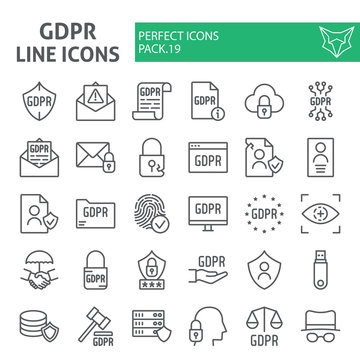Understanding Affiliate Marketing
Affiliate marketing has become a popular way to make money online, with spending on affiliate marketing expected to reach $15.7 billion by 2024, according to Ahrefs. As an affiliate marketer, you promote another company’s products and earn a commission for every sale made through your unique affiliate link. In this section, we will cover the basics of affiliate marketing and explore the benefits of this business model.
What is Affiliate Marketing?
Affiliate marketing is a performance-based marketing strategy where affiliates promote a brand’s or merchant’s products and earn a commission for every sale or lead generated through their unique affiliate link. The commission earned is usually a percentage of the sale price or a flat fee per lead.
How Does Affiliate Marketing Work?
The affiliate marketing process involves four main players: the merchant or brand, the affiliate, the customer, and the affiliate network. The merchant, also known as the advertiser, is the company that creates or owns the product. The affiliate is the person who promotes the product to their audience. The customer is the person who purchases the product through the affiliate’s unique affiliate link. The affiliate network is the intermediary that connects the merchant and the affiliate, tracks sales, and pays out commissions.
Types of Affiliate Marketing
There are three types of affiliate marketing:
- Pay-per-sale (PPS): This is the most common type of affiliate marketing, where affiliates earn a commission for every sale made through their affiliate link.
- Pay-per-click (PPC): In this type of affiliate marketing, affiliates earn a commission for every click made through their affiliate link, regardless of whether a sale is made or not.
- Pay-per-lead (PPL): In PPL affiliate marketing, affiliates earn a commission for every lead generated through their affiliate link. This can include filling out a form, subscribing to a newsletter, or signing up for a free trial.
The Benefits of Affiliate Marketing
Affiliate marketing offers several benefits to both merchants and affiliates. For merchants, affiliate marketing is a low-cost way to promote their products and expand their reach. It also allows them to tap into the affiliate’s existing audience and leverage their trust and influence. For affiliates, affiliate marketing provides a way to earn passive income without the need to create or own a product. It also offers flexibility in terms of choosing the products to promote and the marketing methods to use.
Getting Started as an Affiliate Marketer
To become an affiliate marketer, you need to choose the right niche, evaluate market demand, analyze competition, research affiliate programs, and pick the right marketing methods. In this section, we will cover these steps in detail with the help of various sources.
Choosing the Right Niche
Choosing the right niche is crucial for success in affiliate marketing. A niche is a specific topic or area of interest that you will focus on in your affiliate marketing efforts. To choose the right niche, consider the following:
- Your interests and passions
- Your skills and expertise
- Market demand and profitability
- Competition and saturation
It’s important to choose a niche that you are interested in and passionate about. This will make it easier for you to create high-quality content and engage with your audience. You should also consider your skills and expertise in the niche, as this will help you establish credibility and authority.
However, it’s also important to choose a niche that has market demand and profitability. According to Ahrefs, you can use tools such as Google Trends, Ahrefs, and SEMrush to evaluate the market demand. These tools can help you identify popular keywords and topics related to your niche, as well as the level of competition and search volume.
Analyzing Competition
Analyzing competition involves identifying other affiliates and websites in your niche and assessing their strengths and weaknesses. This can help you identify gaps and opportunities in the market and develop a unique value proposition. According to Authority Hacker, you can use tools such as Ahrefs and SEMrush to analyze your competition.
Researching Affiliate Programs
Researching affiliate programs involves identifying and evaluating affiliate programs that are relevant to your niche and audience. You should consider factors such as commission rates, cookie duration, payment methods, and promotional materials. According to Oberlo, some popular affiliate programs include Amazon Associates, ClickBank, and Commission Junction.
Picking the Right Marketing Methods
Picking the right marketing methods involves choosing the most effective ways to promote your affiliate products and reach your target audience. Some popular marketing methods include:
- Content marketing
- Email marketing
- Social media marketing
- Influencer marketing
- Paid advertising
According to Shopify, it’s important to choose marketing methods that align with your niche, audience, and budget. You should also focus on creating high-quality content that provides value to your audience and promotes trust and credibility.
Creating High-Quality Content
Creating high-quality content is crucial for success in affiliate marketing. Your content should provide value to your audience and promote trust and authority. In this section, we will cover some tips for creating high-quality content with the help of various sources.
Understanding Your Audience
To create high-quality content, you need to understand your audience and their needs. According to Kinsta, you should consider factors such as age, gender, location, interests, and pain points. This will help you create content that resonates with your audience and provides them with solutions to their problems.
Providing Value
Providing value is essential for building trust and authority with your audience. According to Ahrefs, you should focus on creating content that is informative, engaging, and actionable. This can include product reviews, tutorials, how-to guides, and case studies.
Promoting Trust and Credibility
Promoting trust and credibility is important for convincing your audience to purchase the products you are promoting. According to Authority Hacker, you should focus on creating content that is honest, transparent, and unbiased. You should also disclose your affiliate relationship and only promote products that you have used and believe in.
Using Multiple Formats
Using multiple formats can help you reach a wider audience and keep them engaged. According to Oberlo, you should consider using formats such as text, images, videos, podcasts, and infographics. This can also help you repurpose your content and reach your audience on different platforms.
Optimizing for SEO
Optimizing for SEO is important for increasing your visibility and driving traffic to your content. According to Ahrefs, you should focus on optimizing your content for relevant keywords, using descriptive titles and meta descriptions, and building high-quality backlinks.
Staying Consistent
Staying consistent is important for building a loyal audience and establishing authority in your niche. According to Shopify, you should create a content schedule and stick to it. This can help you stay organized, avoid burnout, and ensure that your audience always has fresh content to consume.
Driving Traffic to Your Affiliate Site
Driving traffic to your affiliate site is important for increasing your exposure and earning potential. In this section, we will discuss some tips for driving traffic to your site with the help of various sources.
Content Marketing
Content marketing involves creating valuable and informative content that attracts and engages your target audience. According to Ahrefs, you can use tools such as BuzzSumo and Google Trends to identify popular topics and keywords related to your niche. You should also focus on creating high-quality content that provides value to your audience and promotes trust and credibility.
Search Engine Optimization (SEO)
Search engine optimization involves optimizing your website and content for search engines such as Google, Bing, and Yahoo. According to Oberlo, you can use tools such as Google Keyword Planner and Ahrefs to identify relevant keywords and optimize your content for them. You should also focus on creating descriptive titles and meta descriptions, building high-quality backlinks, and improving your website speed and user experience.
Email Marketing
Email marketing involves building a list of subscribers and sending them targeted and personalized emails. According to Ahrefs, you can use tools such as ConvertKit and Mailchimp to create opt-in forms and automate your email campaigns. You should also focus on providing value to your subscribers and promoting your affiliate products in a subtle and non-intrusive way.
Social Media Marketing
Social media marketing involves promoting your affiliate products on social media platforms such as Facebook, Twitter, and Instagram. According to Oberlo, you can use tools such as Hootsuite and Buffer to schedule your social media posts and analyze your performance. You should also focus on building a strong presence on the platforms where your target audience is most active and engaging with your followers in a positive and authentic way.
Paid Advertising
Paid advertising involves paying for ads on search engines, social media platforms, and other websites. According to Kinsta, you can use tools such as Google Ads and Facebook Ads to create and optimize your ads. You should also focus on targeting your ads to your ideal audience and creating compelling ad copy and visuals.
Influencer Marketing
Influencer marketing involves partnering with influencers in your niche to promote your affiliate products. According to Shopify, you can use tools such as AspireIQ and Grin to find and collaborate with influencers. You should also focus on building authentic relationships with your influencers and providing them with value in exchange for their promotion.
Referral Marketing
Referral marketing involves incentivizing your existing customers and subscribers to refer their friends and family to your affiliate products. According to Ahrefs, you can use tools such as ReferralCandy and Ambassador to create and manage your referral program. You should also focus on providing your customers with a positive and memorable experience and rewarding them for their referrals.
Converting Clicks to Sales
Converting clicks to sales is essential for earning commissions through affiliate marketing. In this section, we will cover some tips for converting clicks to sales with the help of various sources.
Choosing the Right Products
Choosing the right products to promote is important for increasing your chances of making a sale. According to Ahrefs, you should choose products that align with your audience’s needs and interests. You should also focus on promoting products that you have used and believe in, as this can increase your credibility and trustworthiness.
Providing Value to Your Audience
Providing value to your audience is important for building trust and authority and increasing your chances of making a sale. According to Oberlo, you should focus on creating high-quality content that provides value to your audience and promotes your affiliate products in a non-intrusive way. This can include product reviews, tutorials, how-to guides, and case studies.
Building Trust and Credibility
Building trust and credibility with your audience is important for convincing them to purchase the products you are promoting. According to Authority Hacker, you should focus on creating content that is honest, transparent, and unbiased. You should also disclose your affiliate relationship and only promote products that you have used and believe in. Building a strong personal brand can also help you establish trust and credibility with your audience.
Using Persuasive Copywriting
Using persuasive copywriting techniques can help you convince your audience to purchase the products you are promoting. According to Kinsta, you should focus on creating compelling headlines, using emotional language, highlighting the benefits of the products, and using social proof such as customer testimonials and case studies. You should also include a clear call-to-action that encourages your audience to take action.
Offering Incentives and Discounts
Offering incentives and discounts can help you increase your conversion rates and earn more commissions. According to Shopify, you can offer incentives such as free trials, bonus products, and exclusive discounts to encourage your audience to make a purchase. You should also focus on creating a sense of urgency by using limited-time offers and scarcity tactics.
Testing and Optimizing
Testing and optimizing your affiliate marketing campaigns is important for improving your conversion rates and earning potential. According to Ahrefs, you can use tools such as Google Analytics and A/B testing to track your performance and optimize your campaigns. You should also focus on analyzing your data and making data-driven decisions to improve your results.

Tracking and Analyzing Your Performance
Tracking and analyzing your performance is important for measuring the success of your affiliate marketing efforts and making data-driven decisions. In this section, we will cover some tips for tracking and analyzing your performance with the help of various sources.
Setting Goals
Setting goals is important for measuring the success of your affiliate marketing efforts and staying motivated. According to Ahrefs goals that align with your overall business objectives. You should also focus on setting both short-term and long-term goals and celebrating your achievements.
Using Analytics Tools
Using analytics tools is important for tracking your performance and identifying areas for improvement. According to Shopify, you can use tools such as Google Analytics, Ahrefs, and SEMrush to track your website traffic, keyword rankings, and backlink profile. You should also focus on analyzing your data and making data-driven decisions to optimize your campaigns.
Monitoring Your Affiliate Links
Monitoring your affiliate links is important for ensuring that you are earning commissions and identifying any issues with your links. According to Oberlo, you can use tools such as Pretty Links and ThirstyAffiliates to manage and track your affiliate links. You should also focus on testing your links regularly and troubleshooting any issues that arise.
Analyzing Your Sales Funnel
Analyzing your sales funnel is important for identifying areas of your affiliate marketing campaigns that need improvement. According to Authority Hacker, you should focus on analyzing your conversion rates at each stage of the funnel, including your website traffic, opt-in rate, click-through rate, and conversion rate. You should also focus on identifying any bottlenecks in your funnel and optimizing your content and offers accordingly.
Staying Up-to-Date with Industry Trends
Staying up-to-date with industry trends is important for staying competitive and adapting to changes in the affiliate marketing landscape. According to Kinsta, you should focus on reading industry blogs and publications, attending conferences and webinars, and networking with other affiliate marketers. You should also focus on experimenting with new tools and techniques and staying open to feedback and criticism.
Conclusion
Tracking and analyzing your performance is essential for improving your affiliate marketing campaigns and achieving your business objectives. By setting goals, using analytics tools, monitoring your affiliate links, analyzing your sales funnel, and staying up-to-date with industry trends, you can stay ahead of the competition and achieve long-term success in affiliate marketing.

Scaling Your Affiliate Marketing Business
Scaling your affiliate marketing business is important for increasing your revenue and achieving long-term success. In this section, we will cover some tips for scaling your affiliate marketing business with the help of various sources.
Expanding Your Niche
Expanding your niche is important for increasing your reach and diversifying your income streams. According to Ahrefs, you should focus on identifying related niches and expanding your content and offers accordingly. You should also focus on conducting keyword research and analyzing your competition to identify new opportunities.
Outsourcing Your Work
Outsourcing your work is important for saving time and scaling your business. According to Oberlo and guidelines to ensure consistent quality and efficiency.
Leveraging Paid Advertising
Leveraging paid advertising is important for increasing your reach and driving targeted traffic to your offers. According to Kinsta, you can use paid advertising platforms such as Google Ads, Facebook Ads, and native advertising networks to promote your offers. You should also focus on creating targeted ad campaigns and optimizing your landing pages for conversions.
Building Your Email List
Building your email list is important for building long-term relationships with your audience and increasing your revenue. According to Authority Hacker, you should focus on creating high-quality lead magnets and opt-in forms to attract subscribers. You should also focus on providing value to your subscribers and promoting your offers in a non-intrusive way.
Diversifying Your Income Streams
Diversifying your income streams is important for reducing your reliance on a single affiliate program or product. According to Shopify, you can diversify your income streams by promoting multiple products and services, creating your own products, and offering consulting or coaching services. You should also focus on identifying new opportunities and experimenting with new business models.
Conclusion
Scaling your affiliate marketing business is essential for achieving long-term success and increasing your revenue. By expanding your niche, outsourcing your work, leveraging paid advertising, building your email list, and diversifying your income streams, you can take your affiliate marketing business to the next level and achieve your business objectives.

Staying Compliant with Regulations and Guidelines
Staying compliant with regulations and guidelines is important for maintaining the integrity of your affiliate marketing business and avoiding legal issues. In this section, we will cover some tips for staying compliant with regulations and guidelines with the help of various sources.
Understanding FTC Guidelines
Understanding FTC guidelines is important for disclosing your affiliate relationships and avoiding deceptive marketing practices. According to Shopify, you should clearly disclose your affiliate relationships in a conspicuous and understandable way. You should also avoid making false or misleading claims about the products or services you promote.
Complying with GDPR Regulations
Complying with GDPR regulations is important for protecting the privacy and data of your audience. According to Kinsta, you should obtain explicit consent from your audience before collecting and processing their personal data. You should also provide clear and concise privacy policies and cookie notices.
Following Platform Policies
Following platform policies is important for avoiding account suspensions and maintaining your credibility. According to Ahrefs, you should familiarize yourself with the policies of the platforms you use, such as Google, Facebook, and Amazon. You should also avoid using black hat tactics and violating the terms of service of these platforms.
Staying Up-to-Date with Changes
Staying up-to-date with changes in regulations and guidelines is important for avoiding legal issues and adapting to changes in the affiliate marketing landscape. According to Oberlo, you should focus on reading industry news and updates, attending webinars and conferences, and networking with other affiliate marketers. You should also focus on experimenting with new tools and techniques and staying open to feedback and criticism.
Conclusion
Staying compliant with regulations and guidelines is essential for maintaining the integrity of your affiliate marketing business and avoiding legal issues. By understanding FTC guidelines, complying with GDPR regulations, following platform policies, and staying up-to-date with changes, you can protect your audience and ensure long-term success in affiliate marketing.

Are you prepared to become an affiliate Marketer?
You’ve come a long way, congratulations! You should have a solid understanding of what affiliate marketing is, how it functions, and how to get started by now. To assist you on your affiliate marketing journey, we’ll give you some last pointers and resources in this section.
Final Advice
As you embark on your affiliate marketing journey, consider the following advice:
- Put your attention on producing high-quality content that speaks to your audience and promotes your offers in a non-intrusive manner.
- By being open and honest with your audience about your affiliate relationships, you can win their trust.
- To prevent legal problems and safeguard the integrity of your affiliate marketing company, stay in compliance with rules and regulations.
- To adapt to the shifting affiliate marketing landscape, stay current with industry trends and adjustments.
Additional Resources
Here are some additional resources to aid you in your affiliate marketing endeavor:
- A Step-by-Step Guide to affiliate marketing for Beginners by Oberlo
- The Complete Guide to Becoming an Affiliate Marketer by Ahrefs
- A Beginner’s Guide to Using Authority Hacker to Become an Affiliate Marketer
How to Begin Making Money by Shopify: Affiliate Marketing 101 - Kinsta’s Complete Guide to Becoming an Affiliate Marketer.
Check Out Our Other Great Content, ###
Check out our other excellent articles on affiliate marketing, SEO, and digital marketing if you liked this one. To assist you in expanding your company and achieving your objectives, we are dedicated to offering high-quality, informative content.
Questions and Answers
Who can become an affiliate marketer?
Anyone with an online presence and marketing skills can become an affiliate marketer.
What are the best affiliate programs for beginners?
Some popular affiliate programs for beginners include Amazon Associates, ClickBank, and ShareASale.
How much money can you make as an affiliate marketer?
The amount of money you can make as an affiliate marketer varies, but it can range from a few hundred dollars to thousands per month.
What if I don’t have a website for affiliate marketing?
You can still do affiliate marketing without a website by leveraging social media, email marketing, and paid advertising.
How do I choose the right niche for affiliate marketing?
Choose a niche that aligns with your interests, skills, and audience. Conduct market research and evaluate competition to find a profitable niche.
What if I’m not good at sales or marketing?
Affiliate marketing is not about being a salesperson, but rather about promoting products that provide value to your audience. Focus on building trust and providing value to your audience.
